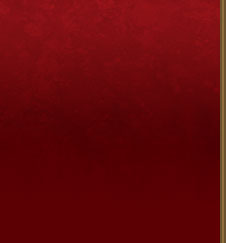Commonwealth of Virginia Judicial Ethics Advisory Committee Opinion 00-8
Date Issued: September 11, 2000
Propriety of a Judge's Writing or Telephoning the Virginia State Bar Supporting a Petition for Reinstatement of an Attorney Whose License had been Surrendered or in Support of an Attorney Facing Disciplinary Action
ISSUES
- May a judge write a letter to the Virginia State Bar supporting the petition for reinstatement of an attorney who had surrendered his license to practice law?
Answer: No.
- May a judge initiate a telephone call to the Virginia State Bar Counsel's Office in support of an attorney facing disciplinary action?
Answer: No.
FACTS
A judge has asked if it would be proper for a judge voluntarily to write a letter to the Virginia State Bar supporting the petition for reinstatement of an attorney who had surrendered his license to practice law. A related factual situation has also arisen prompting the question as to whether it would be proper for a judge to initiate a telephone call to the Virginia State Bar Counsel's Office in support of an attorney facing disciplinary action.
DISCUSSION
Because of the similarity of facts, this discussion is applicable to both inquiries. Canon 2 of the Canons of Judicial Conduct states that a judge "...shall avoid impropriety and the appearance of impropriety in all of the judge's activities." Canon 2B prohibits a judge from "lend [ing] the prestige of judicial office to advance the private interests of the judge or others..." and further states, specifically, that "A judge shall not testify as a character witness." (Emphasis supplied).
The Committee is of the opinion that by voluntarily writing or telephoning officials of the Virginia State Bar in a reinstatement proceeding or disciplinary proceeding involving a private attorney, the judge is, in effect, testifying as a character witness. This action creates the potential of lending the prestige of his or her judicial office in support of the private interests of the attorney. Accordingly, the Committee concludes that both actions would be prohibited conduct under the Canons.
REFERENCE
Canons of Judicial Conduct, Canon 2.
All opinions shall be advisory only, and no opinion shall be binding on the Judicial Inquiry and Review Commission or the Supreme Court in the exercise of its judicial discipline responsibilities. However, the Judicial Inquiry and Review Commission and the Supreme Court may in their discretion consider compliance with an advisory opinion by the requesting individual to be evidence of a good faith effort to comply with the Canons of Judicial Conduct provided that compliance with an opinion issued to one judge shall not be considered evidence of good faith of another judge unless the underlying facts are substantially the same. Order of the Supreme Court of Virginia entered January 5, 1999.
This page last modified: September 13, 2000

